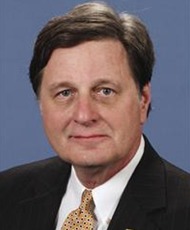Staff Spotlight: Leonard Matarese, M.P.A., ICMA-CM, IPMA-SCP
Co-founder & Principal of CPSM / Director of Research & Project Development

Leonard Matarese is a specialist in public sector administration with particular expertise in public safety issues. With over 50 years of public sector experience, his many roles have included law enforcement officer, police chief, public safety director, city manager. He was also the human resources commissioner for a major city. He has been considered a top public safety expert by the International City/County Management Association (ICMA) since 1984.
Leonard was one of the original advisory board members and trainer for the first NIJ/ICMA Community Oriented Policing Project, which has subsequently trained thousands of municipal practitioners on community policing philosophy and techniques for nearly two decades. He was also part of an ICMA community policing team for the USAID program in Panama. During his career, Leonard has achieved his Society for Human Resources Management (SHRM) certification as a Senior Certified Professional, as well as an ICMA-CM certified manager credential and an IPMA-Senior Certified Professional (SCP). He is a life member of the International Association of Chiefs of Police and of ICMA, and has represented ICMA in meetings with Chinese national police in Beijing.
Leonard has presented before most major public administration organizations and was a keynote speaker at the 2011 annual PERF conference. He was a plenary speaker at the 2011 TAMSEC Homeland security conference in Linköping, Sweden and at the 2010 UN Habitat PPUD Conference in Barcelona, Spain.
Where did you attend college and what did you study?
I studied Political Science and Sociology at Rutgers University and graduated with my degree in 1971. Later, I received my Master’s degree in Public Administration from Florida Atlantic University (FAU). I graduated with a 4.0 GPA was accepted into two honor societies.
How did you get involved in the public safety profession?
I was sworn in as a police officer on my 21st birthday, so I have been involved in public service all of my adult life. I grew up in the ‘60s, when a lot of significant political events occurred. Like many people of my generation, I was drawn to working in public service as a result of that upbringing. After graduating, I became a police officer for several agencies and initially decided to go back to school for my Masters. Once I got into the public administration program, I came to realize that the police department is just a part of a bigger government service that is provided to the public.
How did you first come to work for CPSM?
While working as the Human Resources Commissioner for the City of Buffalo, I learned that the International City/County Management Association (ICMA) was looking to establish a consulting unit that specialized in public safety and other consulting. I was selected as the first Director of Public Safety for that unit about 14 years ago. I ran the program until CPSM spun off as its own organization in 2014.
How has CPSM grown over time?
You learn quickly on the job. We have worked with such a wide variety of organizations across the country – urban, rural, suburban, east coast versus west coast, police, fire, you name it. After participating in over 325 studies, we have learned to pick up good ideas from successful cities and organizations, then share those concepts with others so that improvements can continue and be built upon.
What has been your favorite project?
Working on a study for Flint, Michigan sticks out the most. CPSM was hired during the water crisis to study the police department. We did not make recommendations for the water, but we saw firsthand how difficult the officer’s jobs were. They had to deal with antiquated facilities, terrible work environments, a high crime rate. Those officers were angels for all of the work they did under those conditions.
In your time with CPSM, what has been one of the biggest lessons you’ve learned?
Data really makes a difference. CPSM’s mantra is being a data-driven organization. Understanding and using data properly can help cities address and answer the difficult questions that they are struggling with. Often times, cities have collected more than enough information through computer-assisted dispatch systems, but do not know how to use it to their advantage. CPSM helps them understand how to do that.
How do you want to help CPSM grow in the future?
We have provided terrific resources to local governments and elected officials to make good decisions and better serve the public. We want to continue doing so. CPSM helps public safety agencies to ensure the safety of their citizens through services such as our Chief Selection Advantage program. I want to build on the success we have had with programs like those and help cities make better decisions in selecting leaders for these organizations.
